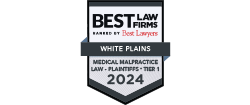Nursing is a noble profession that requires dedication, compassion, and a commitment to providing high-quality care to patients. However, like any field, nursing is not immune to instances of negligence. Negligence in nursing can have severe consequences for patients and legal implications for healthcare professionals. Here are some common examples.
Medication Errors
One prevalent form of nursing negligence involves medication errors. This can include administering the wrong medication, the incorrect dosage, or failing to check for potential drug interactions. Such errors can lead to adverse reactions, worsened health conditions, or even fatalities.
Failure to Monitor
Negligence may occur when nurses fail to adequately monitor patients, especially those with critical conditions. Failure to recognize and respond promptly to changes in vital signs, complications, or deteriorating health can lead to delayed interventions and compromised patient outcomes.
Inadequate Patient Assessment
A thorough assessment is essential for identifying health issues, planning appropriate care, and preventing complications. Failure to conduct proper assessments can lead to misdiagnosis or overlooked health concerns.
Ignoring or Delaying Patient Requests
Neglecting or delaying responding to patient requests for assistance can constitute negligence. Patients depend on timely care, and delays can result in pain, discomfort, or exacerbation of their medical conditions.
Documentation Errors
Accurate and timely documentation is vital in nursing. Negligence may occur when nurses fail to document patient care activities, assessments, or changes in condition. Poor documentation can lead to misunderstandings among healthcare providers and compromise the continuity of care.
Communication Breakdown
Effective communication is crucial in healthcare settings. Negligence may occur when nurses fail to communicate important information to other healthcare team members, leading to misunderstandings, mistakes, or delays in patient care.
Improper Use of Medical Equipment
If nurses improperly use or fail to use medical equipment, such as infusion pumps, monitors, or ventilators, it can be considered negligence. Inadequate training or lack of attention to equipment safety protocols can result in patient harm.
Patient Falls
Failing to implement appropriate fall prevention measures or adequately monitoring patients at risk for falls can be considered negligence. Patient falls can result in serious injuries and complications.
Lack of Infection Control
Nurses have a responsibility to adhere to infection control protocols. Negligence may occur if proper hand hygiene, isolation precautions, or sanitation measures are not followed, leading to healthcare-associated infections.
Failure to Advocate for Patients
Nurses are often the frontline advocates for patients. Negligence may occur if a nurse fails to speak up on behalf of a patient’s best interests, whether in matters of treatment plans, safety concerns, or communication with other healthcare professionals.
Have You Been Harmed Due to a Nurse’s Negligence?
If you have been harmed because of negligence in nursing, you have the right to hold the wrongful party accountable. That may include the nurse, their employer, and other healthcare providers involved in your care.
To pursue this type of medical malpractice claim, you must be able to demonstrate that the nurse breached their duty of care, directly causing your injuries. As a result, these claims often require a thorough investigation, expert testimonies, and legal proceedings.
An experienced and trusted Westchester County medical malpractice lawyer can help you with every aspect of your claim and significantly increase your chances of recovering fair compensation.
 Because Relationships Matter
Because Relationships Matter 















